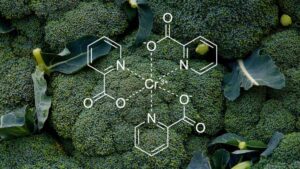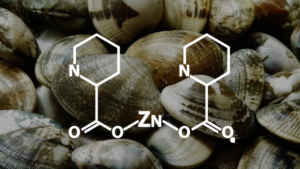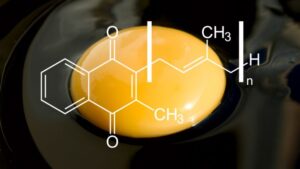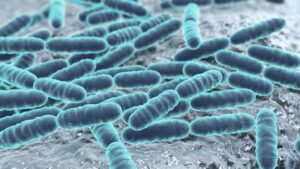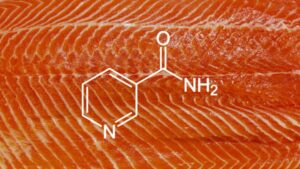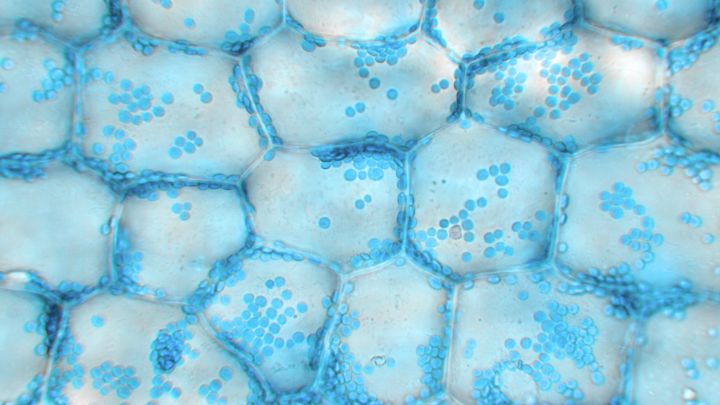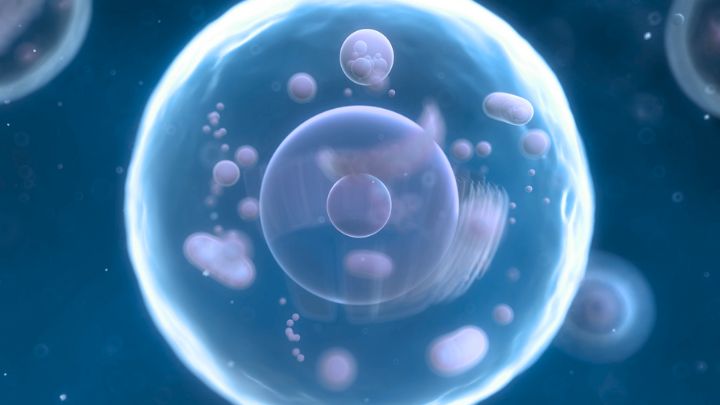Imagine your kitchen piling up on thrash. A straight-up breeding ground for bacteria and all sorts of pathogens. Hygiene takes a back seat and a constant disgusting smell gets to the centre of the stage.
Eventually, your once welcoming kitchen will no longer allow you to cook or store food safely. It’s now a landfill that serves a different purpose. Did you know, your cells can also turn into a junkyard?
In this article
Free guide to reverse your biological age

- Master the science of rejuvenation.
- Apply proven tips to turn back the clock.
- Transform your health with top longevity specialists.
What is autophagy?
Similar to your kitchen, your cells also accumulate waste and damaged components over time. Luckily, nature has allowed for them to clean themselves and clear out debris too.
This process is known as autophagy– your own cellular cleaning crew, allowing you to have a healthy and functional internal environment.

The term ‘autophagy’ is derived from the Greek meaning ‘eating of self’.
Over time, your recycling team can start getting tired and function less efficiently.
This decline is partly responsible for the accumulation of damaged proteins and cellular debris within our cells, the leading cause of many age-related diseases.
Several factors contribute to the decrease in autophagic activity as we get older. Discover the 4 science-proven ways to promote and support autophagy, keeping your cells healthy and disease-free.
How does autophagy work?
Autophagy is a self-degradative process used for balancing energy sources at critical times, like during development and in response to nutrient stress. For instance, it’s activated whilst we’re sleeping or fasting.
On a cellular level, it involves the formation of specialised structures called autophagosomes, which envelop and break down cellular waste, damaged organelles, and even harmful invaders like viruses.

Autophagy is a survival mechanism to conserve energy and reduce harmful by-products. Its disruption is a clear hallmark of ageing.
It can be either non-selective or selective, although the mechanisms regulating aspects of selective autophagy are not fully worked out.
Autophagy plays a housekeeping role by
- eliminating intracellular aggregates and damaged organelles, such as mitochondria, endoplasmic reticulum and peroxisomes.
- promoting cellular senescence and cell surface antigen presentation, where needed.
- protecting against genome instability and prevents necrosis.
In a nutshell, autophagy allows our body to remove cellular waste, making way for fresh, rejuvenated cells. It also keeps our DNA stable and prevents cellular damage.
Autophagy can be stimulated and enhanced through lifestyle choices that empower us to take control of our well-being.
How to promote autophagy?
Autophagy and exercise
Physical activity not only strengthens your muscles and cardiovascular system, but also acts as a catalyst for autophagy.
When we exercise, especially strenuously, our muscle cells kick into gear, not only boosting autophagy but also activating essential autophagy-related genes.
This dual effect potentially enhances our cells’ ability to clean up and rejuvenate themselves. Whilst more research is needed, the link between exercise and autophagy holds great promise [1].
Autophagy and intermittent fasting
Autophagy is strongly induced by starvation and is a key component of the adaptive response of cells and organisms to nutrient deprivation that promotes survival until nutrients become available again.
The key player in deciding whether autophagy is active or not is a protein called TOR kinase.
When nutrients are abundant, TOR is active and promotes cell growth, preventing autophagy. But when there’s a shortage of nutrients or other signals like low energy levels, TOR gets repressed, allowing autophagy to kick in.
Autophagy can also be triggered by low oxygen levels (hypoxia) or when the cell is under stress. This helps cells get rid of damaged parts, like bits of the endoplasmic reticulum (ER) and excess mitochondria when oxygen is scarce.
Autophagy is thought to be one of the mechanisms behind the health benefits associated with intermittent fasting, such as improved insulin sensitivity, weight management, and potential longevity [2].
Learn how to perform the right type of fasting here.
Autophagy and supplements: Spermidine
Your brain, in particular, heavily relies on polyamine levels for healthy development and function. These polyamines intricately interact with the opioid system, glutamatergic signaling, and neuroinflammation within both neurons and glial cells.
Amongst these polyamines, Spermidine claims the highest concentration in the human brain.
As a naturally occurring compound in the body, it is also found in various foods, including wheat germ, soybeans, and some fruits.
Research suggests that Spermidine supplementation can stimulate autophagy in cells. When its levels increase, it appears to promote the formation of autophagosomes, the structures responsible for enclosing cellular material to be degraded and recycled.
The potential health benefits of Spermidine-induced autophagy are of great interest to researchers [3].
- Longevity: Some studies in model organisms, like yeast, worms, and flies, have shown that Spermidine supplementation can extend lifespan. This effect is believed to be mediated, at least in part, by autophagy activation.
- Cardiovascular health: Spermidine has been linked with improvements in cardiovascular health, such as reduced blood pressure and protection against heart disease. Autophagy’s role in maintaining heart health is one of the proposed mechanisms.
- Neuroprotection: Spermidine may have neuroprotective effects by supporting autophagy in brain cells. This could potentially help in the prevention of neurodegenerative diseases like Alzheimer’s and Parkinson’s.
Experience the power of autophagy with Avea’s Inflammaging Routine

- Reduce chronic inflammation
- Boost autophagy and clear senescent cells
- Enhance brain and body function
Our advanced duo targets the root cause of ageing—chronic inflammation—to enhance your cognitive and physical well-being. This powerful combination balances your gut microbiome, eliminates senescent cells (inflammation-causing aged cells), and supports autophagy for a healthier, more vibrant you.
Spermidine benefits you may expect
Whilst the experience will vary from person to person, and maximal benefits are reaped upon consistent supplementation, here are some of the autophagy-induced benefits of Spermidine:
- Increased energy levels and decreased levels of fatigue.
- Improved memory, mental clarity, and overall cognitive performance.
- Enhanced skin health with more radiant complexion.
- Better overall cardiovascular well-being and blood pressure.
- Less joint pain and a decreased risk of chronic inflammatory conditions.
- Healthier hair and nails.
- Improved digestion, less bloating, gas, and discomfort.
- Healthy weight or even experience gradual weight loss.
Read more on Spermidine benefits here.
Autophagy and sleeping
Your circadian rhythm (sleep-wake cycle) ensures that autophagy aligns with the body’s needs, including nutrient availability and energy demands. Autophagy is in fact more active during your sleep than in your waking hours.
Sleep is a period of rest and restoration for the body, including your cells. It allows your brain to clear out waste products and toxins that accumulate during the day.
Melatonin, produced during sleep, also has antioxidant properties that support autophagy. Growth hormone, released during deep sleep, then stimulates tissue repair and cell growth.
Poor sleep quality or insufficient sleep may disrupt the natural balance of autophagy, and have negative impacts on overall health [4].
Keynote from Avea
Autophagy has gathered substantial recognition within the field of longevity, attracting a multitude of scientists and researchers eager to unravel its mysteries.
This cellular process, renowned for its role in rejuvenating cells and potentially extending lifespan, is a focal point of cutting-edge research worldwide.
Autophagy’s significance lies in its potential to ward off age-related diseases. It may prevent neurodegenerative conditions, cardiovascular diseases, cancer, metabolic disorders, and inflammatory ailments.
Take advantage of autophagy’s promoting ways and ensure your cells can continue performing it efficiently.
References
